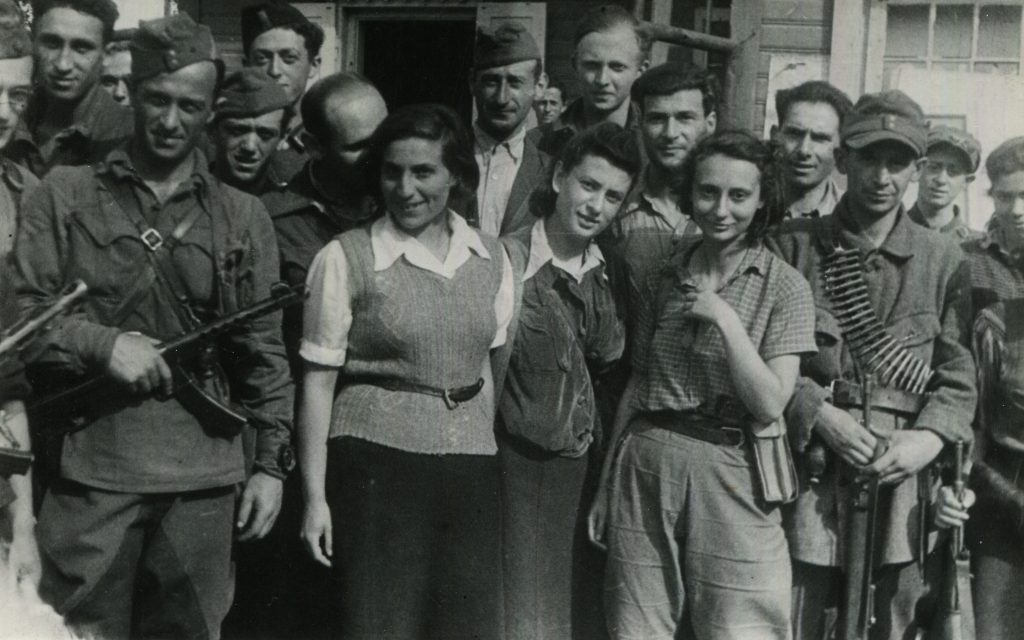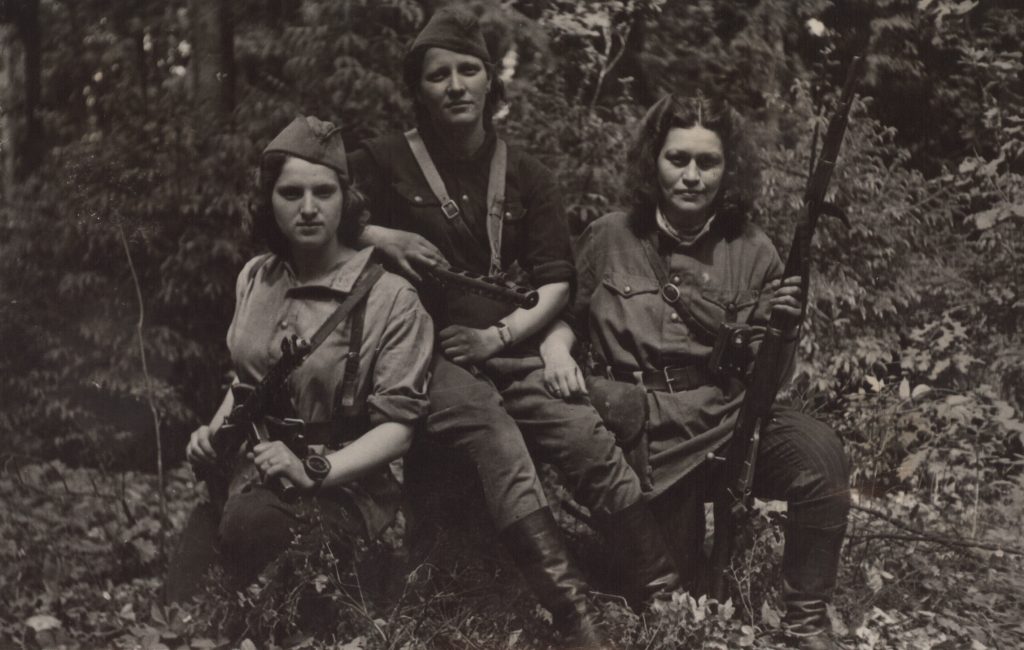The way from the ghetto to the partisan squads in the forest was not easy. For Jewish girls in the circumstances of war, it was especially dangerous. Memories testify about the help and solidarity of the people they met, and about the constant danger. Not everyone who tried to reach the partisan squads in the Narutis Forest or Rūdninkai Forest did it successfully – many Jews were killed along the way.
As a result of antisemitism, the partisan squads were formed on an ethnic basis; recruitment was carried out and priority was given to young men with weapons as staying in the forest had meant not an escape, but an active struggle against the Nazis. Women in the squads were not considered equal fighters to men and had to prove their courage and loyalty.
Women in the concentration camps also needed courage, a strong will and a desire to survive.
During the time of drastic changes, women and girls had to solve the dilemma of whether to abandon their values just to be alive?

“I remember the forest and a long log; an impressive, tall man and a blonde woman were sitting there. Chaila Šapiro and I presented ourselves. The man asked questions. His name was Miceika. He asked how we came there, various things. And suddenly he said: ‘You girls are so energetic and willing to fight! I want to take you to my squad’. He mentioned the Adam Mickiewicz Squad. But suddenly the blonde woman said: ‘I’m not going to give you Jewish girls!’ We, astonished: ‘How can it be?’ We were shocked: ‘What? Are the Jewish girls worse than others? Is that a kind of antisemitism?’[…] I said to Chiena [Borovskaya], ‘We got out of the ghetto to the partisans, and we find antisemitism here!’ And she said to me, ‘Calm down’. That [blonde] woman was Albina [Gessia Gleser]. Chiena explained to me: ‘You know, the situation in the partisan squads is different. Especially for the girls … After all, different people have gathered’. And Albina knew and understood that the moral attitudes in the Jewish group would be completely different than in the gang of people of various kinds.”
Fania Yocheles-Brancovskaya
Members of the Jewish partisan squad after the war in Vilnius. July 1944.
Vilna Gaon Museum of Jewish History
“We went to the village in the morning. We found a house at the end of the village, and a woman was there … It appeared that it was Žvėrynas, which was not on our list. We said we’re going to Senieji Maceliai. That we’re going to harvest potatoes. It was September. The hostess fed us. I don’t know if she knew that we were Jews. She gave us milk and rye bread that we hadn’t seen during those two years. What was the taste of that bread! I still sense it. She showed us directions and we left. She did not betray us and even fed [us]. We walked all day [on 24th of September] and could see that in the evening of the 24th [people] were still working in the fields – harvesting potatoes.”
Fania Yocheles-Brancovskaya

Former prisoners of the Kaunas Ghetto, and the fighters of the Jewish partisan squad ‘Death to Occupiers’ after the war, in July 1944. From the left: Rivka Bloch,
Rivka (Alta) Boruchoviciute-Teper, Estera Shtrom
Vilna Gaon Museum of Jewish History
“Children would like to know, they are interested in their past, their ancestors, and who they were.”
Ieva Černevičiūtė, the granddaughter of a Holocaust survivor
“There was a time when I was told: don’t tell anybody what you hear at home. So I was silent – I didn’t talk about anything. Even if I wanted to… When we left Lithuania and came to Israel I still couldn’t open up. I wasn’t able to say what I was feeling. I couldn’t share things that were important to me. […] Only after returning to Lithuania in 2016 I started talking openly.”
The daughter of the Holocaust survivors Bella Shirin